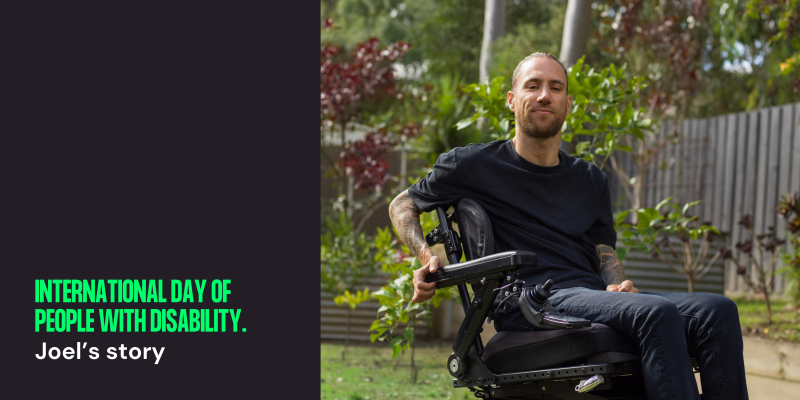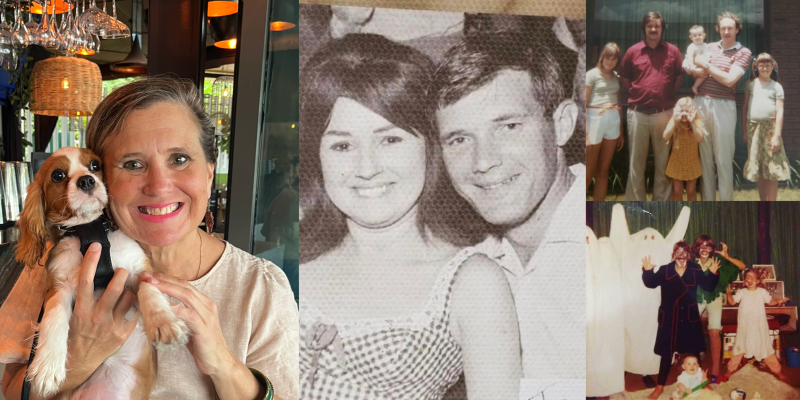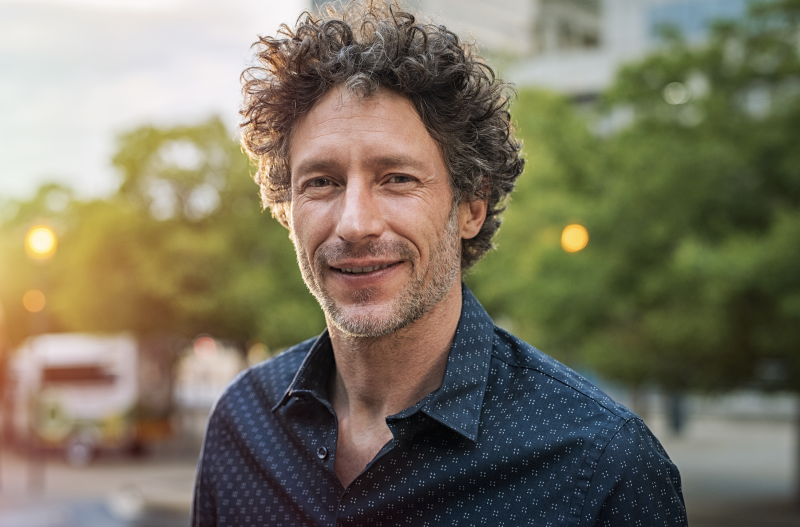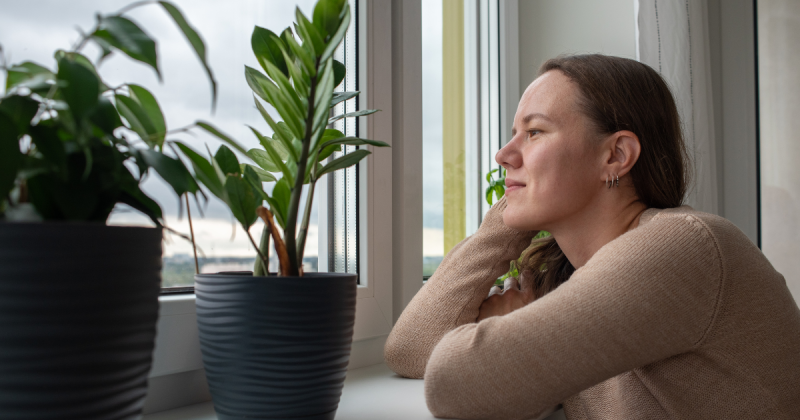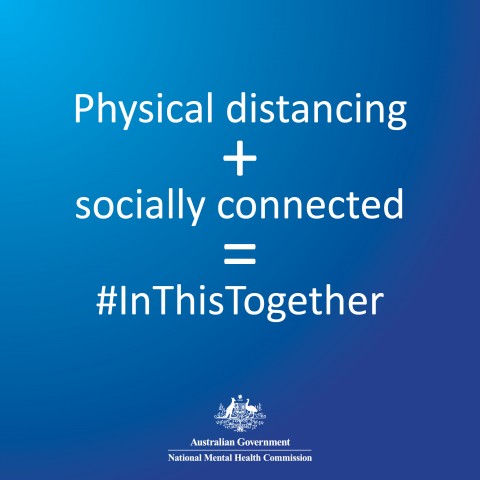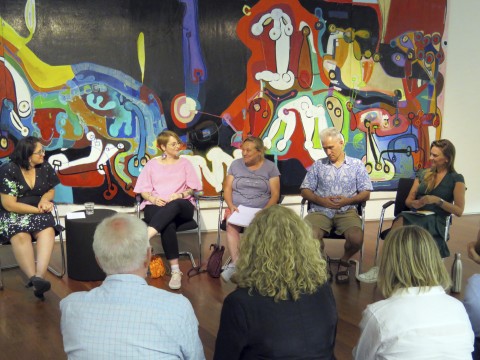I grew up completely ‘normal’, or at least in my own narrow mind it was. I did what I wanted when I wanted, went places without physical challenges, social or emotional. Played community and school sports, performed in bands, productions – I was absolutely, “normal”. I had no true understanding or construct of disability - or so I thought. I thought that because I had no form of diagnosed disability, I was much like everyone else and everything in my life I was exposed to. I saw disability as, “different”. How wrong I was.
The SANE Blog
Therese is a passionate social work student and hiker who has worked in early education for over 20 years. She grew up with a father who had schizophrenia. Last week Therese spoke with SANE about her experience of living with someone with a complex mental illness, how things have evolved over time, and how talking about everything has helped.
Engaging in meaningful work is an important part of many people’s lives, including those living with schizophrenia. Many people with schizophrenia can absolutely find a job and thrive in the workplace, and work across a variety of industries and positions. This is especially the case when they have the right supports in place.
If you have social anxiety, you know what it feels like to experience intense anxiety in social situations. It can involve a fear of judgement or embarrassment and can sometimes result in you avoiding social situations altogether.
While it’s quite common (around 7 per cent of Australians have experienced social anxiety in the past 12 months), there are a lot of myths surrounding it. Debunking these myths is important, so that they don’t create stigma and self-stigma, or prevent people from seeking help.
Here are five myths about social anxiety – and the facts that prove them wrong.
In these extraordinary times, SANE is proud to come together with our fellow mental health organisations to launch #InThisTogether.
#InThisTogether is a national conversation, sharing tips to support our mental health and wellbeing through COVID-19. This campaign reminds us that we'll all need a little extra support during this time.
We've kicked things off with a video message from SANE Patron Osher Günsberg, along with many others including Ian Thorpe AM, Pat McGorry AO, Health Minister Greg Hunt, and Kabi Kabi man and public health medical advisor Dr Mark Wenitong.
It's so important to check in with each other, and encourage people to seek professional support when they need it. Follow SANE on Facebook, Instagram or Twitter as we continue to share valuable tips and advice on how we can all be #InThisTogether.
This post originally appeared on Dr Deb Robert's blog here.
There is no one all ‘fixit’ for those who suffer from mental health conditions. I’ve searched far and wide since I was a teenager for a therapy that can give me a lasting reprieve from the bouts of anxiety and depression I have suffered from for most of my life. Whether my condition is a genetic predisposition or has developed from adverse experiences, I can’t conclude for certain but what I do know is that a combination of factors has contributed to my reality.
Traditional methods and farfetched therapies, I’ve explored them all. I’ve seen psychologists who provide Cognitive Behaviour Therapy (CBT) and Dialectic Behaviour Therapy (DBT), and I’ve seen psychiatrists who provide psychotherapy and pharmaceuticals. I’ve explored Transcranial Magnetic Stimulation (TMS) and Eye Movement Desensitisation and Reprocessing (EMDR). I’ve tried kinesiology, chiropractic work, osteopathy and naturopathy. Acupuncture, yoga, yoga therapy and massage therapy. Heck, I’ve even attempted equine therapy. But, nothing has provided sustainable, long-lasting relief.
Many of us, including me at times, have put barriers up to historically controversial therapies. One such therapy is Electroconvulsive Therapy (ECT).
For a long time, I sided with societal prejudice about ECT, so my decision to try ECT was not an easy one.

On Thursday 28 March, Julia Young, Curator at The Dax Centre, sat down with four artists from their current exhibition—STIGMA: dismantled, revealed to talk about their experience of stigma, self expression and art making.
Once the audience had indulged in cheese platters and drinks, they gathered around Cornelia Selover’s oil on board artwork, The complex heaven of a broken mind, to hear Simon Crosbie, Lucy Hotchin, Kylie Steinhardt and artist in residence Jessie Brooks-Dowsett participate in a Q&A style panel conversation.
“What are your experiences of stigma, and how do you feel we can dismantle and reveal it?,” Julia asked the artists.
“I think my own self stigma was my biggest obstacle,” Kylie said.
“Emergency room stigma from doctors, nurses and the medical system is the worst. That’s the part of the stigma that gets in your soul,” Lucy added. “The whole idea of doing well whilst experiencing mental illness—you can actually be in a state of flux and still be doing well in life.”
Burnout and compassion fatigue are terms carers regularly hear when caring for someone with a mental illness.
There is no doubt that caring for someone can be a demanding, stressful and exhausting role. It's also common to be told to look after yourself and prevent burnout. But, at times it can be difficult to know when we are feeling normal pressures or when it’s something more.
Twice a month, SANE runs Topic Tuesday events on our forums. These are a chance for people around the country to come together in real time to discuss issues involving complex mental illness. Previous topics have covered everything from the side effects of medication to creating a safety plan, from supporting someone through panic attacks to sex and intimacy with a complex mental illness.
Topic Tuesday discussions are anonymous, safe, moderated by mental health professionals and free for users to take part.
The forum holds a space for a Lived Experience community and another for the Carers community and a monthly event is held in each side. In January we hosted “Supporting your loved one through a panic attack” in the Carers forum but with participation from people in both groups.
It was extremely informative to hear about panic attacks from both those having them and those observing them. Here’s a selection of perfectives from the event.
Many said the first time came as a shock:
